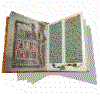Some readers think of them as too thick headed to enjoy reading a novel by Don DeLillo; it’s a case where a writer’s reputation for heady lyricism repulses rather than attracts. The author’s difficulty, though, is overstated. You’re not a drone for not being drawn to Delilah; he either appeals to you or he doesn't, as is the case with any other serious (or less serious) writer who wants to get your attention. The charges that DeLillo is tedious, wordy and pretentious, not necessarily in that order, are they tedious and, it seems, levied by a folks who either haven't read much of the author, more likely, put forward by a host of soreheads who use DeLillo as a representative of a kind of fiction writing they dismiss wholesale.
I'm not an easy sell when it comes to being seduced by writer's reputations--my friends accuse me of being too picky, too "critical"--but I've read most of DeLillo's fifteen novels since I discovered him in the early Seventies; if I didn't find his writing brilliant and vibrant or found his narrative ruminations on the frayed American spirit engaging, I'd not have bothered with him. DeLillo is a serious writer, but he is not pompous. Not in my estimation, anyway.
There is a block of otherwise smart people who distrust and actively dislike anything that suggests elegant or lyric prose writing. John Updike, who I think was perhaps the most consistently brilliant and resourceful American novelists up until his death, was routinely pilloried for the seamless flow of his perfectly telling details. If one cares to do a survey, I suspect they'd find the same caustic template levied at other writers who are noted for their ability to detail the worlds they imagine in ways that make the mundane take on a new resonance. Nabokov, DeLillo, Henry James, Richard Powers have all been assessed by a noisy few as being "too wordy". The sourpusses seem to forget that this fiction, not journalism, that this literature, no police reports. The secret, I think, is that a writer possessed of a fluid style manages to link their mastery of the language with the firm outlining of the collective personalities of the characters, both major and minor. The elegance is in service to a psychological dimension that otherwise might not be available. The thinking among the anti-elegance crowd is that writing must be grunts, groans and monosyllabic bleats, a perversion of the modernist notion that words are objects to use as materials to get to the essential nature of the material world. Lucky for us that no one convincingly defined what "essential nature" was, leaving those readers who love a run on sentence with more recent examples of the word drunk in progress.



No comments:
Post a Comment
Comments are moderated due to spam. But commentaries, opinions and other remarks about the posts are always welcome! I apologize for the inconvenience.